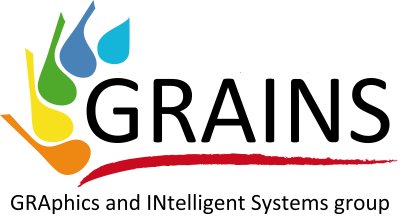-
Pervasive and Ubiquitous Computing
Major interests of the GRAINS group in field of pervasive and ubiquitous computing include security and privacy, optimization of algorithms and protocols (e.g., anti-collision, network deployment, etc.), and cutting-edge applications (e.g. traceability, environment monitoring, energy saving, digital identity, etc.).
The research activity is mainly focused on three technologies: Radio Frequency Identification (RFID), Near Field Communication (NFC) and Wireless Sensor Network (WSN). The main characteristic common to the various technologies for pervasive and ubiquitous is that the involved resources are very limited. Therefore, specific solutions must be developed. For both RFID and WSNs, the GRAINS group is working on several topics.
Inside the security and privacy topic applied to RFID, the main activity of the group is represented by the development of efficient solutions for data encoding complaint with RFID tags without cryptographic capability and without central servers. Another topic that involves RFID is the interference analysis. In this research area, the group works on the interference models for reader-to-reader collision in UHF passive RFID systems, on the development of efficient interference simulators in large UHF passive RFID systems, and on the interference between UHF RFID and GSM. Moreover, the group studies the RFID reader-to-reader collision, that represents the interference among RFID readers. Even the RFID applications represent a topic of interest for the GRAINS group, in particular in the agri-food domain.
In the area of WSNs, activity concerning the security and privacy field is focused on key management, that represents a hard and fundamental task for WSNs. The group has also worked on MAC, routing and deployment issues in WSNs. Finally, the group works on cutting-edge applications of WSNs, such as environment monitoring and health care.Still in the context of cutting-edge applications, the group is working on the development of innovative services for digital identity in the health care, by combining the use of NFC solutions and mobile computing technologies in an integrated fashion.


